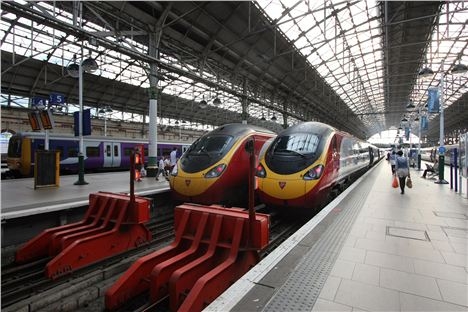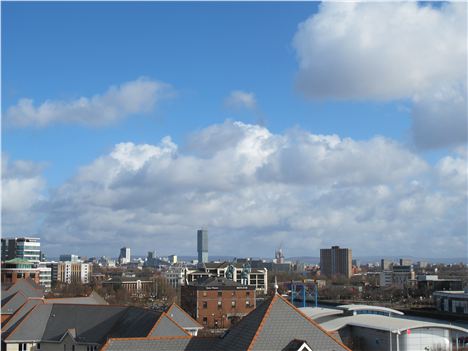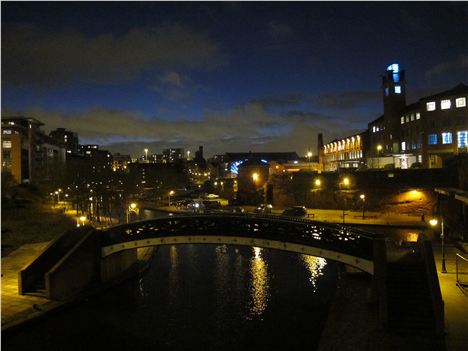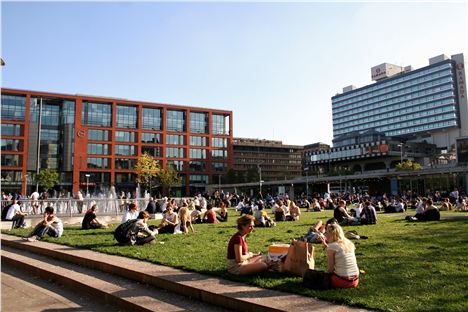INVESTMENT in developments across Manchester could create 70,000 jobs in the city over the next five years.
Quite simply, strong regions equal strong countries. What’s important for a place like Manchester is being able to draw in investment and reinvest in the region
Manchester City Council has highlighted projects including the Etihad Campus, First Street and NOMA as examples of the city’s progress towards maximising its economic growth. In the coming years, these and other developments will create a host of office, retail, residential and leisure spaces citywide.
Through investment in broadband technology, transport links - over £1.5billion in the Metrolink alone - and training a skilled labour force, the council aims to reduce its dependency on public grants and ensure Manchester’s ‘importance to national prosperity’.
Some projects, such as the Northern Hub rail upgrades, will require public funding in the short-term, while others are the result of private backing. The Northern Hub alone promises to contribute £4billion to the economy in the North and several local authorities have publicly urged the government to commit to the scheme.
 Sir Richard Leese, leader of Manchester City Council, said: “There are a number of exciting developments taking place in Manchester which will mean we will not only be well placed to deal with the current economic downturn but will remain a leading international city over the next few decades.
Sir Richard Leese, leader of Manchester City Council, said: “There are a number of exciting developments taking place in Manchester which will mean we will not only be well placed to deal with the current economic downturn but will remain a leading international city over the next few decades.
“The Co-op’s NOMA development will have the capacity to create more than 15,000 jobs over the next decade, while Spinningfields – the largest and most successful office scheme outside Canary Wharf – will also create thousands more jobs as it continues to develop.
“The Etihad Campus will transform large parts of east Manchester, bringing in around £127 million worth of investment and boosting private sector confidence in the area.”
A report presented to the council earlier this month described the importance of Manchester becoming a ‘smarter city’. This means investing in infrastructure, developing strategies for financial growth and adapting to cope with reduced government support for local communities.
Despite the economic instability that underpins this message, the outlook apparently remains positive.
Hotel occupancy for the last twelve months rose to over 80%, peaking at 99% in the city centre on 20 September. Meanwhile, property development, urban regeneration and targeted investment across the city all look set to continue attracting big businesses and tourism to the region.
 And the benefits could be felt well beyond the M60.
And the benefits could be felt well beyond the M60.
The Centre for Cities report, Cities Outlook 2012, says that ‘larger cities like London, Manchester and Bristol’ have the necessary combination of size and high-value businesses ‘to play a bigger role in driving national economic growth’.
It adds that 72% of employment in the North West is in its cities. In other words, everyone stands to benefit from attracting new business and private investment to the city.
Professor Iain Begg from the London School of Economics said: “Quite simply, strong regions equal strong countries. What’s important for a place like Manchester is being able to draw in investment and re-invest in the region.”
He added that cities can benefit from providing something a bit different that will attract interest from all over the country.
“Media specialisation, with MediaCityUK for example, is something that is of national relevance,” he said.
Manchester’s various projects are at varying stages of development, with Spinningfields having already created 8,000 jobs to date. Others, such as improving transport links, have a much more long-term focus.
But if the city can continue to attract support in the form of private and public investment, there seems to be plenty to suggest the council’s vision for Manchester might become a reality.













